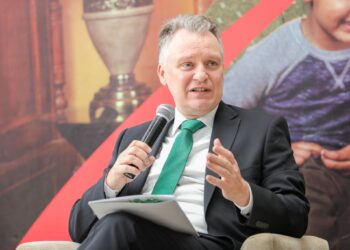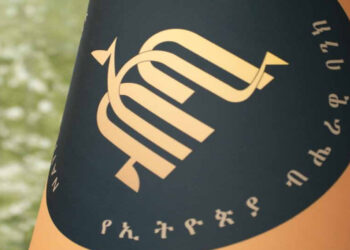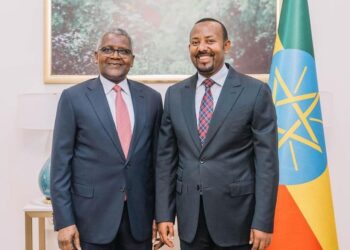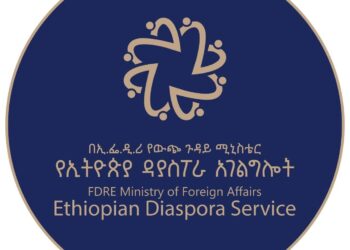What if your ID wasn’t just a plastic card you forget at home before every important errand—but a key to unlock financial services, social benefits, and even a better-functioning government? Well, Ethiopia is making that dream real, and the rest of Africa is taking notes.
The country just launched its first-ever #ID4Africa forum, a three-day conference held at Addis Ababa’s Skylight Hotel. But this isn’t your average bureaucratic gathering. With over 1,000 government officials from 48 African countries in attendance, Ethiopia is playing host to one of the continent’s most significant gatherings on digital identity for the first time.
“Faida” Means Benefit, and It’s Living Up to the Name
In his opening speech, Prime Minister Abiy Ahmed (PhD) declared,
“Digital ID is now not just a product of innovation but a useful public infrastructure.”
Translation? Faida isn’t some shiny new government toy—it’s the plumbing for a more efficient, inclusive, and digitized Ethiopia.
As of now, 15 million Ethiopians are already signed up with Faida, Ethiopia’s national digital ID system. The goal? 100 million citizens registered by 2027. That’s nearly the entire population. If that sounds ambitious—it is. But so was landing a spacecraft on Mars, and here we are.
Yodahe Arayaslassie, the CEO of Faida National Identity, stressed,
“It’s not just a card. It’s a unique number that gives only the info you actually need—while keeping your secrets, well… secret.”
In other words, Faida isn’t a digital snitch. It’s a smart, privacy-respecting tool that says, “Yes, this person is who they say they are,” without spilling their entire biography.
Identity: Not the Endgame—The Beginning
PM Abiy was refreshingly clear-eyed in his remarks.
“Identification is not an end in itself, but it is important to link it with finance, education, and social protection.”
This is the real story. Digital ID isn’t about numbers and registration tallies; it’s about access—to loans, to schools, to healthcare, to subsidies, and maybe even to fewer hours wasted in government offices (a dream worthy of a national anthem verse, if you ask us).
Already, Faida is connected to 55 essential services—from banks to social welfare programs. It means that when someone walks into a bank or health clinic with their Faida ID, systems are speaking the same language. No more awkward silences or lost paperwork. That’s a win.
No Government is an Island
Abiy didn’t sugarcoat it:
“No government can do this alone.”
Indeed, the heavy lifting of building a truly inclusive digital ID system needs more than just state muscle. It requires collaboration with the private sector, civil society, and development partners. It’s like building a house—you need architects, builders, electricians, and that one uncle who claims he can fix anything (but can’t).
Whether it’s mobile network operators verifying identity, NGOs helping reach rural communities, or donors funding key infrastructure, this is a team sport.
The Bigger Picture: Governance, Inclusion, and Even Fintech
The value of a national digital ID becomes clear when you zoom out. For one, it enhances governance—enabling accurate voter registration, efficient tax collection, better disaster response, and reduced corruption.
Then there’s financial inclusion: millions of Ethiopians without formal bank accounts could finally enter the financial system. Microloans, insurance, savings—all become more accessible with a verified identity.
Even Ethiopia’s blossoming fintech sector stands to benefit. Digital lenders and wallets can use Faida to onboard users faster and with less risk. That means more innovation, better products, and possibly fewer awkward identity questions from loan apps.
But Wait—Isn’t This All a Bit… Ambitious?
Yes. And that’s a good thing.
There are challenges, of course—rural internet access, digital literacy, concerns around data protection, and making sure people don’t feel like they’re being herded into a dystopian database. But so far, the government seems aware of the stakes and is working on building trust, ensuring transparency, and putting people—not just systems—first.
A Model for Africa?
With this year’s ID4Africa forum hosted in Ethiopia for the first time ever, the country is stepping into a leadership role. It’s showing that digital identity isn’t just for high-income countries or tech utopias—it’s for every nation ready to unlock the full potential of its people.
By 2027, if Faida hits its registration goals and continues integrating with core services, Ethiopia could become a continental case study in digital transformation done right.
And if we’re lucky, maybe even fewer lines at government offices.
Bottom Line?
Ethiopia’s digital ID isn’t just about knowing who people are. It’s about empowering them to become more—economically, socially, and digitally. And that’s a revolution worth watching.























